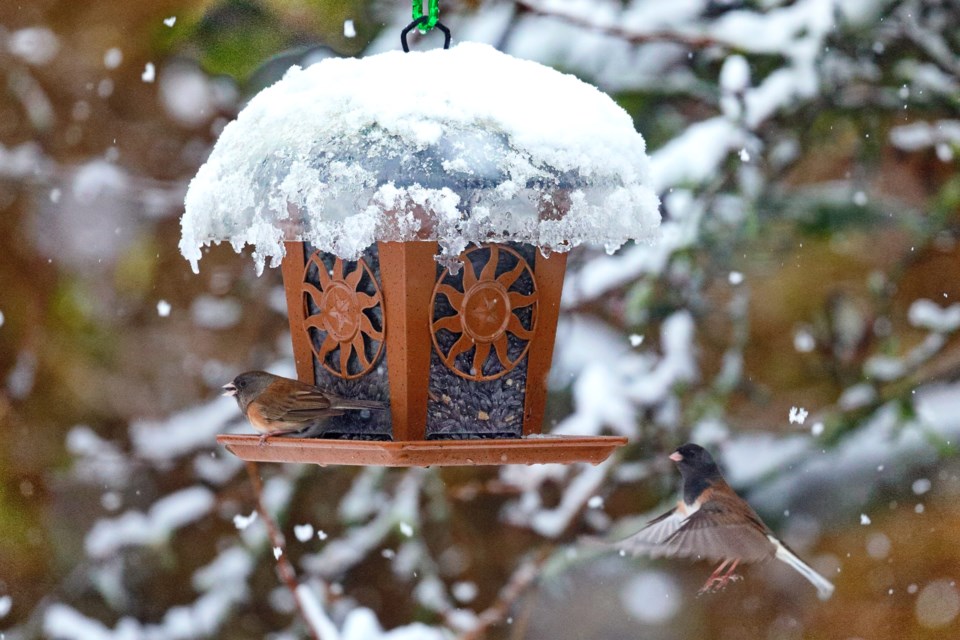In some parts of British Columbia, the first snow has touched the ground, and winter is just around the corner. During this time of year, food can be scarce, and many of us like to offer a bird feeder to support local wildlife through the season. However, it is important to do so in a safe way.
Avian diseases can easily spread among birds sharing feeders because they attract many birds to one place. By keeping your feeders clean, you can help prevent your winged friends from getting sick and passing it on to others.
Jackie McQuillan, Support Centre manager at Wildlife Rescue, said one of the best daily practices to prevent the spread of avian diseases is to remove all seeds from the ground to avoid contamination. If left on the ground seeds become interspersed with droppings so birds foraging on the ground can easily pick up pathogens from infected birds that have visited your feeder.
Additionally, bacteria and mould thrive in wet environments, like the soggy winter ground. Rodents are often attracted to spilled food, also increasing opportunities for disease transmission. To make this cleanup easy, consider placing a tray beneath the feeder to catch spilled seed.
Additionally, it is recommended to clean your feeders bi-weekly. Start by discarding any remaining seeds, then wash the feeder with hot, soapy water. After rinsing the feeder thoroughly, disinfect it by using a solution of one part household bleach and nine parts water. Lastly, thoroughly rinse the feeder and ensure it is fully dried before refilling with fresh food.
If you notice sick birds in your backyard, it is recommended to clean your feeders and put them away for at least three to four weeks, or until sick birds are no longer present, to help minimize the spread of avian diseases.
“We can’t ask a sick bird not to come to the buffet, so sometimes it’s best to just postpone the dinner party before anyone else gets sick,” said McQuillan.
Signs of illness include puffiness and drowsiness, lack of alertness, and swollen or abnormal eyes.
“Sick birds may also seek heat up against buildings,” she adds. If you come across a sick or injured bird, please contact Wildlife Rescue for guidance.
McQuillan encourages wildlife supporters to learn more about feeder maintenance online.
An alternative way to support wildlife during the winter is by including native plants in backyard gardens. This provides food and shelter for wild birds over the fall and winter months. You will attract more wildlife visitors to your yard without needing to maintain a feeder.
Thank you for doing your part in keeping wildlife safe.
This article was written by Elin Molenaar, the communications coordinator at Wildlife Rescue Association.



